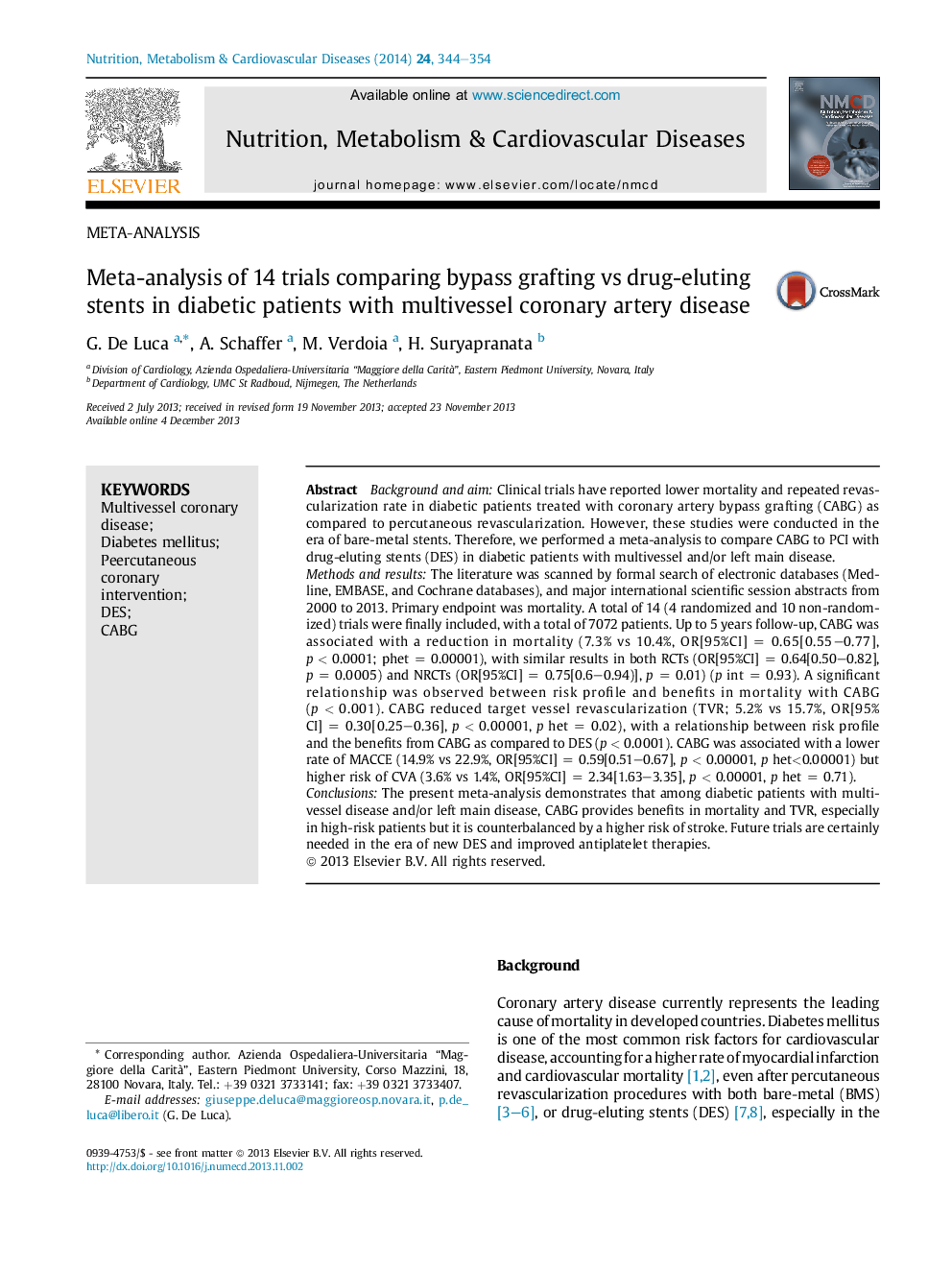| Article ID | Journal | Published Year | Pages | File Type |
|---|---|---|---|---|
| 5996436 | Nutrition, Metabolism and Cardiovascular Diseases | 2014 | 11 Pages |
Background and aimClinical trials have reported lower mortality and repeated revascularization rate in diabetic patients treated with coronary artery bypass grafting (CABG) as compared to percutaneous revascularization. However, these studies were conducted in the era of bare-metal stents. Therefore, we performed a meta-analysis to compare CABG to PCI with drug-eluting stents (DES) in diabetic patients with multivessel and/or left main disease.Methods and resultsThe literature was scanned by formal search of electronic databases (Medline, EMBASE, and Cochrane databases), and major international scientific session abstracts from 2000 to 2013. Primary endpoint was mortality. A total of 14 (4 randomized and 10 non-randomized) trials were finally included, with a total of 7072 patients. Up to 5 years follow-up, CABG was associated with a reduction in mortality (7.3% vs 10.4%, OR[95%CI] = 0.65[0.55-0.77], p < 0.0001; phet = 0.00001), with similar results in both RCTs (OR[95%CI] = 0.64[0.50-0.82], p = 0.0005) and NRCTs (OR[95%CI] = 0.75[0.6-0.94)], p = 0.01) (p int = 0.93). A significant relationship was observed between risk profile and benefits in mortality with CABG (p < 0.001). CABG reduced target vessel revascularization (TVR; 5.2% vs 15.7%, OR[95%CI] = 0.30[0.25-0.36], p < 0.00001, p het = 0.02), with a relationship between risk profile and the benefits from CABG as compared to DES (p < 0.0001). CABG was associated with a lower rate of MACCE (14.9% vs 22.9%, OR[95%CI] = 0.59[0.51-0.67], p < 0.00001, p het<0.00001) but higher risk of CVA (3.6% vs 1.4%, OR[95%CI] = 2.34[1.63-3.35], p < 0.00001, p het = 0.71).ConclusionsThe present meta-analysis demonstrates that among diabetic patients with multivessel disease and/or left main disease, CABG provides benefits in mortality and TVR, especially in high-risk patients but it is counterbalanced by a higher risk of stroke. Future trials are certainly needed in the era of new DES and improved antiplatelet therapies.
